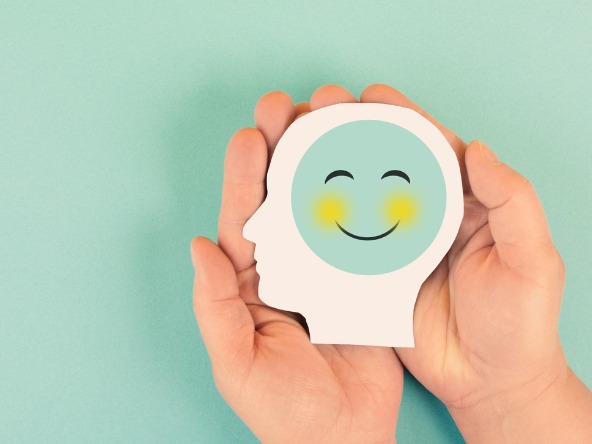In good health? Revitalising wellness culture

I find myself internally wincing at references to wellness within research and insights. More often than not, it’s a superficial nod to tired tropes of busy mums in yoga leggings and the solutions usually revolve around a quiet ‘me time’ moment of consumption.
Wellness is all too often used as a veneer for overconsumption, instant gratification or problematic beauty and lifestyle standards. From curated social media feeds to those clichéd tropes, the narrative revolves around fleeting feel-good or look-good experiences. But brands aren’t delivering against the deeper human need for genuine wellbeing.
Brands in this space might not all be as deceptive as the true-ish story of influencer and scammer Belle Gibson in Netflix’s recent hit Apple Cider Vinegar, but the wellwashing bubble has truly burst.
Is wellness over? I can’t figure out if it’s because I’m a quallie or simply an optimistic mum in yoga leggings, but I’d argue there’s still merit in wellness if we get back to basics and understand the fundamental needs behind the movement first.
At the core, wellness has the potential to tap into our desires to proactively improve all dimensions of our health – that can be our physical, mental, emotional and spiritual state. In today’s permacrisis culture, characterised by perpetual uncertainty and a collective sense of flight-or-flight, it’s no surprise that the promise of better wellbeing has come to the fore as an appealing salve to the real tensions people face in their daily lives.
What could the next era of wellness usher in? There’s a huge potential to better understand consumers and better deliver innovation to meet these foundational needs if we extend our understanding of this movement beyond individualism, superficiality and performative acts of self-care.
My own social media algorithm kindly served up viral posts recently where women shared ways they've rekindled their own ‘spark’. I was inspired by the imaginative strategies and rituals that were shared. And also struck by the tensions at play in how wellness shows up in real, everyday life.
These tensions offer a wealth of human understanding and demonstrate the continued relevance and huge breadth of opportunity that true wellness represents for brands, innovation and insight. But to take advantage of this opportunity we need to redefine what wellness means in 2025 and beyond.
Collective wellness is as powerful as solo journeys
Contrary to the idea of the quiet ‘me time’ moment, connection can be a powerful route to wellbeing. While individualism has dominated wellness culture, there’s a new shift towards community and relationships as the catalyst for personal renewal, not just the outcome.
This presents an opportunity to reframe wellness strategies towards collective endeavours rather than individualistic pursuits – aligning wellness messaging with broader ESG and sustainability goals.
In other words, help consumers collectively do good, not just look good.
Wellness doesn’t take itself too seriously
There’s an emergence of wellness activities that burst with joy, energy and a sense of playfulness. This directly contradicts the calm, serene, earnest image of wellness culture and challenges the notion that wellbeing must be a serious, quiet pursuit.
Along these lines, it’s fascinating to see wellness stretch into the gap that declining nightlife industries leave behind. With day raves and innovative wellness spas positioning themselves as “wellness reimagined as connection and celebration”.
Digital tools are legitimate wellness solutions
There’s often the assumption that wellness and technology are at odds with one another. While digital detoxing has its place, there’s a more nuanced approach to digital wellbeing where selective, intentional engagement with technology facilitates self-discovery.
Today, digital tools are becoming legitimate wellness solutions, not just fuel for anxiety. As one TikTok reply put it: “ChatGPT taught me how to complete the stress cycle response, how to grieve my ex and helps me understand parasocial relationships.”
The emergence of AI therapy should inspire us as insights and research professionals. If people willingly share intimate struggles with AI that they might not disclose to other humans, how might we ethically leverage this openness to gather deeper human understanding?
What these observations ultimately reveal is that wellness remains a profound opportunity for brands, innovation and insight – not despite its contradictions, but because of them. The narrow, superficial version of wellness is indeed over-hyped and under-delivering, but in its place, a more authentic, nuanced movement is emerging.
Brands that can navigate this new era of wellness stand to understand consumers more deeply and build deeper brand relationships.
The path forward is not about abandoning wellness but revitalising it – recognising wellness as a multidimensional human need rather than a superficial social media trend. This means respecting the messy, contradictory reality of wellness in real life, embracing collectivity and playfulness, and supporting consumers in achieving a sense of wellbeing on their own terms.
Amy Thomson is a qualitative director

We hope you enjoyed this article.
Research Live is published by MRS.
The Market Research Society (MRS) exists to promote and protect the research sector, showcasing how research delivers impact for businesses and government.
Members of MRS enjoy many benefits including tailoured policy guidance, discounts on training and conferences, and access to member-only content.
For example, there's an archive of winning case studies from over a decade of MRS Awards.
Find out more about the benefits of joining MRS here.













0 Comments